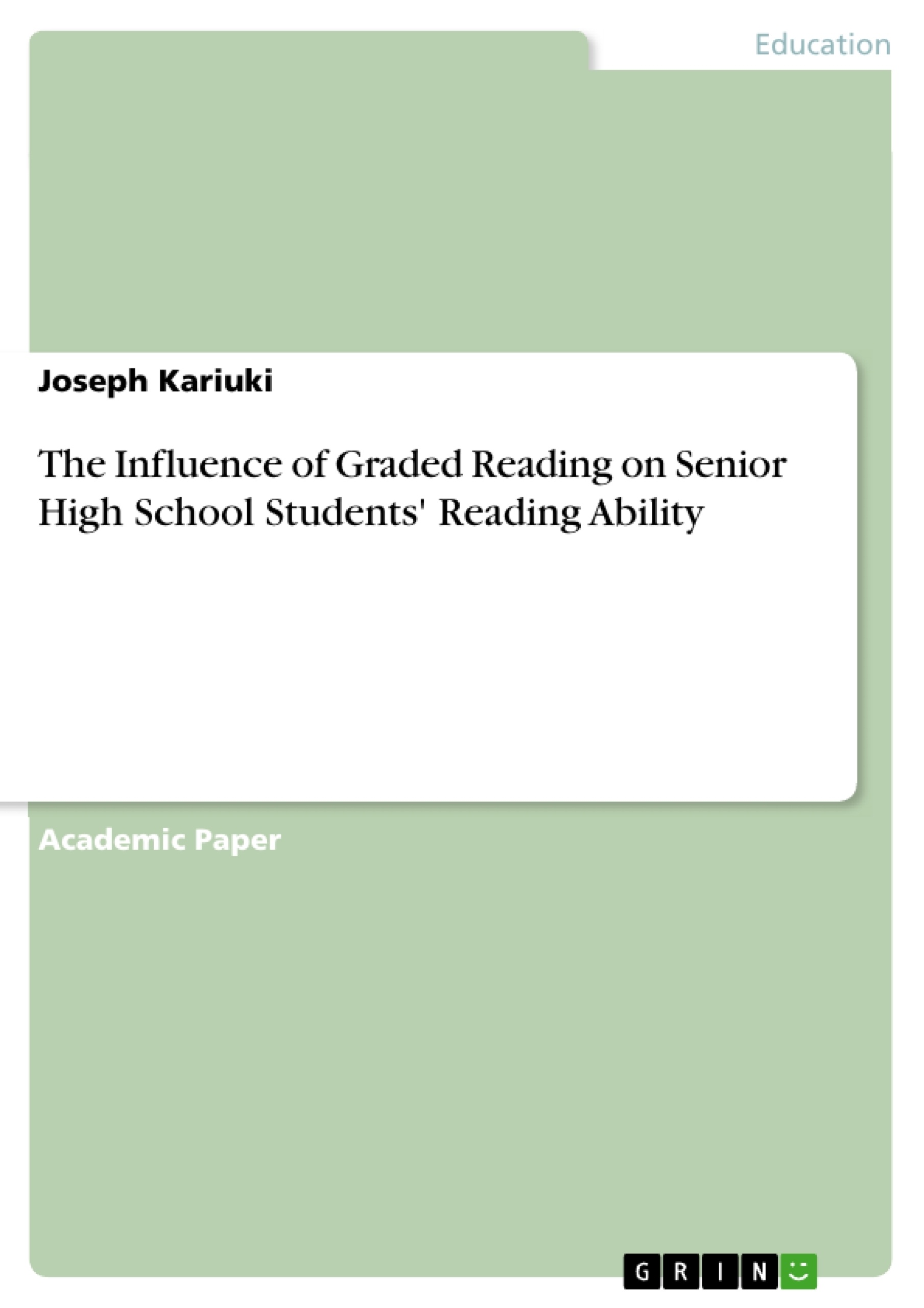The objective of this study was to investigate the impacts of graded reading on the students' reading in high school.
Graded reading is a method of teaching, that makes students find it easy and fun to learn more about texts by getting information from many different sources. The subjects of this study are 27 students who were tested with a quasi-experimental technique by use of a quantitative approach. For this, questionnaires and a test observation were made. The technique of data analysis was by use of paired t-test from SPSS 22.
Inhaltsverzeichnis (Table of Contents)
- Introduction
- Background of the study
- Literature Review
- Graded Reading
- Study on relevant graded reading at home and abroad
- Previous study on graded reading studies abroad
- Previous study on of domestic graded reading studies
- Research and Design
- Research Issues
- Study Subjects
- Study Methods
- Data analysis
- Analysis of the Effect of Graded Reading on Reading
- The impact of graded reading on students' learning interest
- Effect of graded reading on students' academic performance
- Conclusion
Zielsetzung und Themenschwerpunkte (Objectives and Key Themes)
This study investigates the impact of graded reading on senior high school students' reading abilities. The research utilizes a quantitative approach with a quasi-experimental design, aiming to analyze the effectiveness of graded reading in improving students' reading comprehension and interest in learning.
- The influence of graded reading on reading comprehension skills in high school students.
- The impact of graded reading on students' engagement and motivation in the learning process.
- The effectiveness of graded reading as a pedagogical approach for enhancing reading fluency and vocabulary development.
- The role of graded reading in fostering a positive learning environment and promoting a love for reading among students.
Zusammenfassung der Kapitel (Chapter Summaries)
- Introduction: This chapter introduces the study's background, highlighting the importance of reading in language development and the potential of graded reading to enhance students' reading skills. It establishes the context for the research by discussing the significance of reading comprehension and the need for effective reading strategies.
- Literature Review: This chapter delves into existing research on graded reading, both domestically and internationally. It examines previous studies that have explored the benefits and effectiveness of graded reading as a pedagogical tool for enhancing reading fluency, vocabulary acquisition, and comprehension.
- Research and Design: This chapter outlines the research methodology employed in the study. It describes the research questions, the participants involved, the data collection methods used, and the statistical analysis techniques applied to analyze the data.
- Analysis of the Effect of Graded Reading on Reading: This chapter presents the findings of the study, examining the impact of graded reading on students' reading comprehension and learning interest. It analyzes the results of the pre-test and post-test data to assess the effectiveness of the intervention.
Schlüsselwörter (Keywords)
The study focuses on the key concepts of graded reading, reading comprehension, and student engagement in the learning process. It examines the impact of graded reading on students' reading abilities, vocabulary development, and motivation for learning English as a foreign language.
Frequently Asked Questions
What is graded reading?
Graded reading is a teaching method where students read texts adapted to their specific language proficiency level to make learning fun and effective.
How does graded reading affect students' reading ability?
Studies show that it significantly improves reading comprehension, vocabulary development, and overall academic performance in high school students.
Does graded reading increase interest in learning English?
Yes, by providing accessible and interesting materials, students feel more motivated and less frustrated, leading to a higher engagement with the language.
What was the methodology of this study?
The research used a quantitative approach with a quasi-experimental design, including pre-tests, post-tests, and questionnaires analyzed with SPSS.
Why is reading fluency important for language learners?
Fluency allows learners to process information faster and focus on the meaning of the text rather than struggling with individual words.
- Quote paper
- Joseph Kariuki (Author), 2022, The Influence of Graded Reading on Senior High School Students' Reading Ability, Munich, GRIN Verlag, https://www.grin.com/document/1246894



